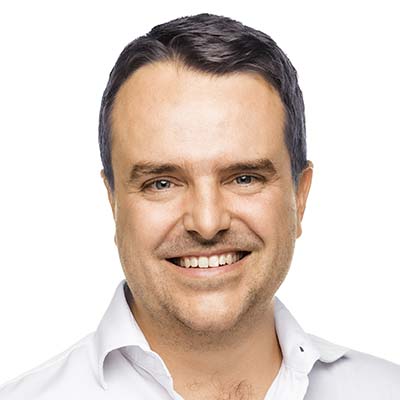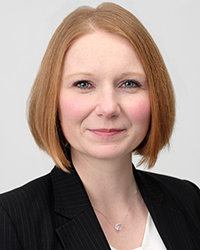The Future is Bright
BNP Paribas’ unique trainee programme is making waves in its bid to attract young talent to treasury.
Published: February 28, 2024



A jam-packed career so far has seen Andre Olivier graduate from cutting his professional teeth as an analyst during the 2008 financial crisis to heading up treasuries across both corporate and fintech worlds. Here, he discusses his professional trajectory, reveals the lessons learnt, and predicts challenges and opportunities ahead for treasury practitioners – if they are prepared to embrace change.
There can have been few, if any, more challenging periods in recent times for a budding treasurer to begin their career than the 2008 financial crisis. Yet that was the fate of Andre Olivier, Vice President, Global Treasury at PayU, the global payments platform and fintech investor.
Just on the cusp of the worldwide upheaval, Olivier had joined commodity trading company Trafigura as an enthusiastic, ambitious, but – in his own words – very green treasury analyst with no inkling of the chaos ahead.
He recalls: “It really was a baptism of fire but also, of course, a fantastic learning curve. Most of us who began our journey in treasury around that time would agree with that. As a kid fairly fresh out of university, there was a heck of a lot I did not have a complete grasp on in those early days at Trafigura. But I learnt continually during my time there, and that was incredible.”
South Africa-born Olivier goes on to explain that commodity trading (including hedging), by its very nature, requires firms to enter and exit positions quickly. It is, therefore, less risky and cheaper in liquid markets. So, with liquidity essentially drying up at the height of the financial crisis, the major priority for Trafigura and its treasury team became dealing with the liquidity crunch. He, therefore, quickly understood the vital importance of knowing where cash was located on a daily basis and the terms under which it was being held.
As has become a recurring theme throughout his career, Olivier progressed rapidly at Trafigura, moving up from treasury analyst to managing the group’s North American treasury operations in Houston, Texas, after just two years. In 2012, armed with the valuable experience gained at the commodity trading firm, he moved to downstream oil company Puma Energy, also owned by Trafigura. Based in Johannesburg, he set up and managed treasury operations for the African region, covering 13 countries.
“That, again, was an incredible learning experience. We were looking to introduce a new treasury culture and practice on the ground – while operating in a commercial environment that is very, very different from, say, the US and UK. It is not often as a treasurer that you get the chance to gain such experience, so I’m extremely grateful for that.”
Three years after joining Puma, Olivier found himself hankering after not only a new challenge but also the experience of markedly different industries from those with which he was familiar. That ambition was fulfilled in 2015 when he joined MultiChoice, a broadcast media business also based in Johannesburg. There, he was responsible for its treasury functions across the African region, covering 15 countries, including complex markets such as Nigeria, Angola, and Zimbabwe.
He recalls the experience: “At the time, MultiChoice had a fairly robust South African business and treasury, but the rest of Africa was underdeveloped from a treasury perspective. My job was to help the company establish its treasury footprint across Africa.
“We achieved a lot, I think, in optimising the treasury operation for the wider Africa market and embedding processes to ensure we had a handle on different kinds of exposures across the various markets. We needed to think out of the box more often than not. It was an extremely interesting and exciting time for me – yet another great experience.”
Three years after joining MultiChoice, and as much as he was enjoying his time there, Olivier accepted an offer to lead the treasury at PayU, the payments and fintech investment arm of MultiChoice’s then-owner, Naspers.
On the topic of fintech treasury, Olivier says the journey away from pure corporate treasury has been highly revealing, with clear differences between the two work environments. Indeed, in his experience, those distinctions are “pretty stark”.
He explains: “Once you get really into it, treasury is treasury, ultimately. None of the fundamentals change, irrespective of the type of organisation or sector. It is the orientation towards treasury fundamentals and how treasury contributes to the wider organisation from a pure business perspective that represents the biggest differences in my experience. As a treasurer in a financial service fintech, your scope is wider, and you have more opportunities to have an organisation-wide impact.
For a payments-focused company such as PayU, everything revolves around financial messaging and technology services. Managing the basics such as payments, settlements, and reconciliation effectively and keeping abreast of traditional functions, including working capital, liquidity, cash flow, risk management, and FX, is essential – pretty much in line with treasuries in other industries.
“The main difference from pure corporate treasury is that you have two buckets of money to manage in financial services: your own money and monies belonging to clients such as merchants. We have to manage that money on behalf of clients very carefully, be like a bank, and we do so using the same cash management principles you would find in a traditional corporate. The combination of roles and responsibilities straddling traditional treasury and managing client monies, as at PayU, takes you far closer to the business and far deeper into its operation and strategy.”
As a cutting-edge payments-focused fintech, PayU is also highly proactive in leveraging established and new technologies that integrate most closely with the needs and capabilities of customers. The company makes extensive use of not only APIs and RPA but also AI, especially on the credit side, and ML. PayU parent, Prosus, even has its own internal version of ChatGPT, which Olivier is planning to use to help draw up internal policies.
Indeed, Olivier is focused on finding a “silver bullet solution for digitising treasury policies” – with the help of AI. “Currently, drawing up policies requires lots of manual effort and updating; therefore, it requires a great deal of time. Nowadays, we need policies that are much more responsive to real-time developments to help with risk management.
“Clearly, the buzzword with technology now is AI and its applications, such as in the payments arena, forecasting, and reconciliation. As a result, there is now much greater emphasis on the accuracy, collection, and management of data. If you don’t have the capability to use data, then obviously, AI is not going to be an option. At PayU, data is everything, especially in treasury.”
Like most treasurers, aside from tech innovations, Olivier also keeps a keen eye on ESG developments, paying particular attention to how regulations might impact his treasury operations and the broader organisation. He believes everyone has a responsibility to have a vested interest in ESG. While Olivier’s operation has not yet undertaken any concrete work on the ESG front, he sees that changing soon.
Thankfully, Olivier has a large team to help execute on these ambitious plans. PayU’s global treasury team is currently 15 strong with a presence across EMEA, Latin America and India. Olivier has thoroughly enjoyed leading the establishment of the operation, pretty much from scratch.
“It’s actually quite coincidental that every three or four years, I’ve had some kind of major change in role. For whatever reason, I always seem to find myself being presented with opportunities where something needs to be built. It has been immensely rewarding, not least for my own personal development as a treasurer. You get to make your own mark, of course, but you also learn fast how to approach and deal with challenges.”
“With PayU. I count myself extremely lucky to have been in the right place at the right time. The role appealed to me because there are so many opportunities to grow with the organisation across multiple geographies. And we are very ambitious – we’ve invested billions of dollars in the business over the past six to seven years.
Helping to meet these ambitions and build a successful career at the same time requires passion but also realism, he believes. And he offers some sage words for other treasury professionals: “You do need to be passionate about the work and want to make a real difference. If you feel you are not doing that where you are, then look elsewhere to do so and advance your career that way. Otherwise, you are not doing yourself justice or fully engaging with the needs of the organisation.”
As to whether professional qualifications are needed for career advancement, Olivier is more on the fence – given the new, highly challenging, very fast-moving macroeconomic era with which organisations are grappling.
He explains: “Because the world has become so incredibly dynamic over the past few years, I do sense there is less and less focus on professional qualifications. Greater importance is being attached to being able to think on your feet, make heuristic-based decisions, and stay calm.
“For me, the need now is for treasurers who can make quick, decisive calls based on limited, ambiguous information in an increasingly complex and volatile world that you can’t really learn about in the classroom. The knowledge that you get on the job from a practical perspective, especially with organisations that operate globally, is what is most important, in my view. Traditional education helps and provides good foundations but perhaps becomes less relevant because it cannot adapt quickly enough to what is happening. So, in the age of amazing technology, human instinct is still the ultimate prize – at least for ensuring your treasury team can cope with all types of financial weather.”